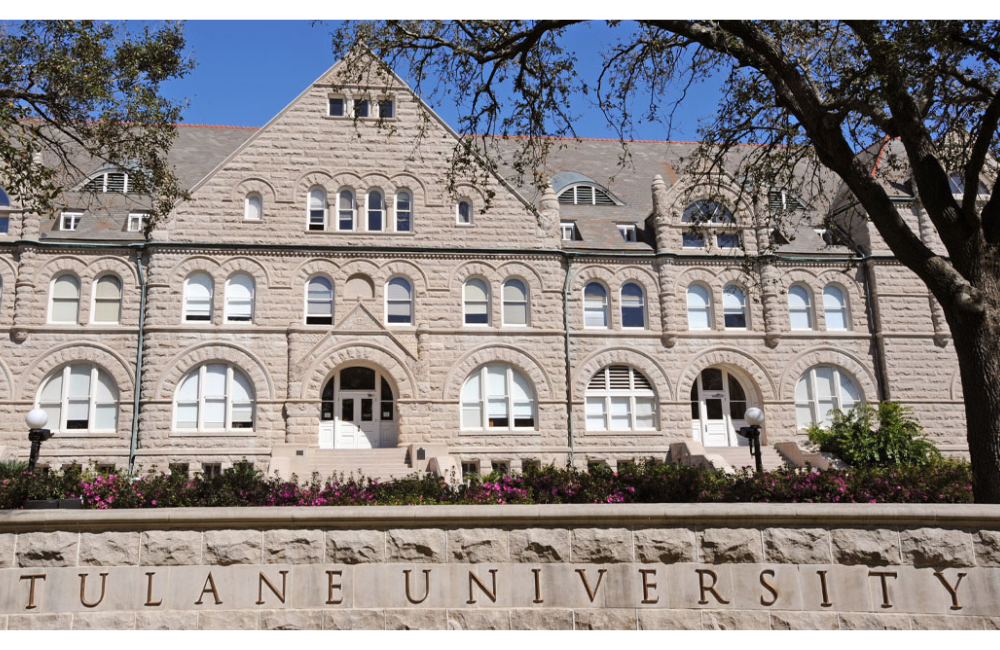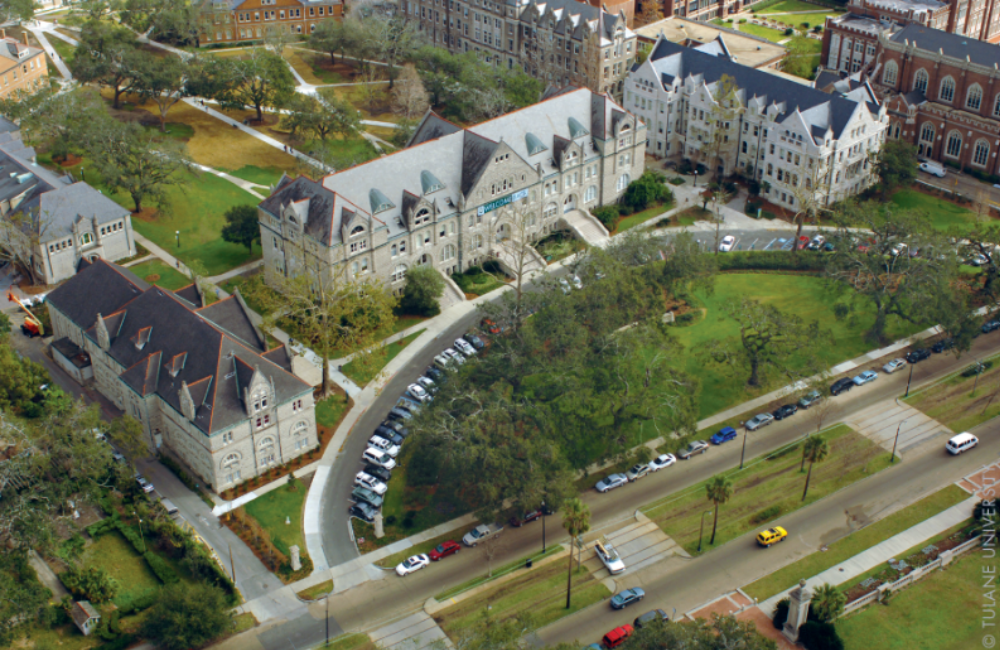For the 2023-2024 academic year: The average cost of attendance of an international student (Tuition Cost + Living Expenses) for graduate students is approximately $55,040.
Tulane University
New Orleans, Louisiana
$55,040

Tulane University is a private institution that was founded in 1834. It has a total undergraduate enrollment of 7,780 (fall 2021), its setting is urban, and the campus size is 110 acres. It utilizes a semester-based academic calendar. Tulane University's ranking in the 2022-2023 edition of Best Colleges is National Universities, #44. Tulane University, located in New Orleans, is divided between the main uptown campus and a downtown campus, which is the center for health science programs. The school has a well-regarded law school, and its School of Public Health and Tropical Medicine is the only specialty school of its kind in the U.S. Freshmen and sophomores must live on campus, with a few exceptions. Students can participate in more than 200 student organizations on campus. Tulane is one of 65 members of the Association of American Universities, an elite group of top-ranked research institutions.

Points of Pride
- Tulane is a member of the Association of American Universities and is designated with “very high research activity” (R1) by the Carnegie Foundation for the Advancement of Teaching.
- 96% of graduates are working or continuing education within one year of graduation.
- The School of Science and Engineering provides multiple options for graduate research funding, including graduate fellowships, scholarships, recent graduate fellowships at the School of Science and Engineering, National Science Foundation fellowships, and more.
- The faculty of the School of Science and Engineering attracts over $20 million dollars in sponsored research, generates over 500 articles in refereed journals, and files for over 15 new patents each year.
- Located in the extraordinary city of New Orleans, the birthplace of jazz, Tulane offers an unforgettable study in the USA experience. Tulane’s state-of-the-art campuses create a vibrant living and learning environment, while the city’s world-famous restaurants, live music clubs, and galleries are just a short walk or streetcar ride away.
- An elite private university, Tulane’s small class sizes ensure that students always get dedicated attention and support. Plus, the university’s global research partnerships and interdisciplinary collaborations mean that academic connections, professional networking, and career development opportunities extend well beyond campus.
University Highlights
- 15 Tulanians were named Fulbright U.S. Student Program grant recipients for 2022-2023.
- Tulane offers over 200 graduate degree programs across nine schools, in-person and online.
- As one of 65 members of the Association of American Universities, Tulane offers innovative research opportunities across a multitude of disciplines.
- Students can take classes like “New Orleans Cities of the Dead,” about cemetery architecture, or “The Music and Culture of New Orleans” as part of our TIDES (Tulane Inter-Disciplinary Experience Seminars) freshman seminars. The classes are cool but the way so much of what we do is woven into the fabric of our city is even cooler.
- As an institution committed to life-changing research, Tulane University was awarded $11.4 million (USD) by the National Institutes of Health for supporting clinical research scientists studying patients with high blood pressure, obesity, diabetes, and related conditions.
- All of our students participate in community engagement before graduating.
- 8:1 Student-to-faculty ratio.
- Ranked #1 College City, The Princeton Review, 2022.
- Ranked #4 Happiest Students, The Princeton Review, 2022.
- 90+ Research institutions across multiple fields.
US News & World Report Rankings
- #44 Best National Universities
- #34 Most Innovative Schools
- #80 Best Value Schools
US News & World Report Rankings - Graduate
- #127 in Best Engineering Schools
- #58 in Biomedical Engineering / Bioengineering
- #72 in Chemical Engineering
- #102 in Materials Engineering
- #92 in Most Graduates Practicing in Medically Underserved Areas
- #93 in Biological Sciences
- #44 in Biostatistics
- #101 in Chemistry
- #98 in Earth Sciences
- #79 in Economics
- #16 in Health Care Management
- #73 in Mathematics
- #95 in Physics
- #12 in Public Health
- #12 in Environmental Health Sciences
- #16 in Epidemiology
Programs
Graduate
- Applied Mathematics - STEM Designated
- Architecture - STEM designated
- Biomedical Engineering - STEM Designated
- Biostatistics - STEM designated
- Cell and Molecular Biology - STEM Designated
- Chemical and Biomolecular Engineering - STEM designated
- Computer Science - STEM Designated
- Materials Science and Engineering - STEM Designated
- Mathematics - STEM Designated
- Public Health – Environmental Health Sciences - STEM designated
- Public Health – Epidemiology - STEM designated
- Public Health – Health Policy - STEM designated
- Public Health – International Health and Sustainable Development - STEM designated
- Public Health – Social, Behavioral, and Population Sciences
- Tropical Medicine - STEM designated
For a complete list of majors please visit the URL:
tulane.edu/academics/graduate-programs Graduate
- IELTS: 7.0
- TOEFL: 100
- Duolingo: 130+
- GRE/GMAT: Varies by program
- Application Fee: $50
- Fee Waiver: Available





